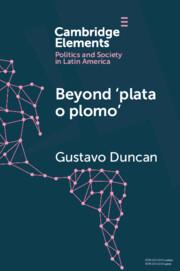This essay reviews the following works:
Bandits and Liberals, Rebels and Saints: Latin America since Independence. By Alan Knight. Lincoln: University of Nebraska Press, 2022. Pp. xvi + 423. $35.00 paperback. ISBN: 9781496229786.
Latecomer State Formation: Political Geography and Capacity Failure in Latin America. By Sebastián Mazzuca. New Haven, CT: Yale University Press, 2021. Pp. xii + 448. $50.00 hardcover. ISBN: 9780300248951.
Republics of Knowledge: Nations of the Future in Latin America. By Nicola Miller. Princeton, NJ: Princeton University Press, 2020. Pp. ix + 304. $42.00 hardcover. ISBN: 9780691176758.
The Mexican Revolution’s Wake: The Making of a Political System, 1920–1929. By Sarah Osten. Cambridge: Cambridge University Press, 2020. Pp. xiv + 290. $29.99 paperback. ISBN: 9781108401289.
Five Republics and One Tradition: A History of Constitutionalism in Chile, 1810–2020. By Pablo Ruiz-Tagle. Translated by Ana Luisa Goldsmith. Cambridge: Cambridge University Press, 2021. Pp. x + 314. $110.00 hardcover. ISBN: 9781108835312.
Liberalism as Utopia: The Rise and Fall of Legal Rule in Post-colonial Mexico, 1820–1900. By Timo H. Schaefer. Cambridge: Cambridge University Press, 2019. Pp. x + 248. $29.99 paperback. ISBN: 9781316640784.
A Woman, a Man, a Nation: Mariquita Sánchez, Juan Manuel de Rosas, and the Beginnings of Argentina. By Jeffrey M. Shumway. Albuquerque: University of New Mexico Press, 2019. Pp. xvii + 334. $34.95 paperback. ISBN: 9780826360908.
Los juegos de la política: Las independencias hispanoamericanas frente a la contrarrevolución. By Marcela Ternavasio. Buenos Aires: Siglo XXI Editores, 2021. Pp. 264. Arg$1,720 paperback. ISBN: 9789878010809.
A Life Together: Lucas Alamán and Mexico, 1792–1853. By Eric Van Young. New Haven, CT: Yale University Press, 2021. Pp. xii + 833. $50.00 hardcover. ISBN: 9780300233919.
